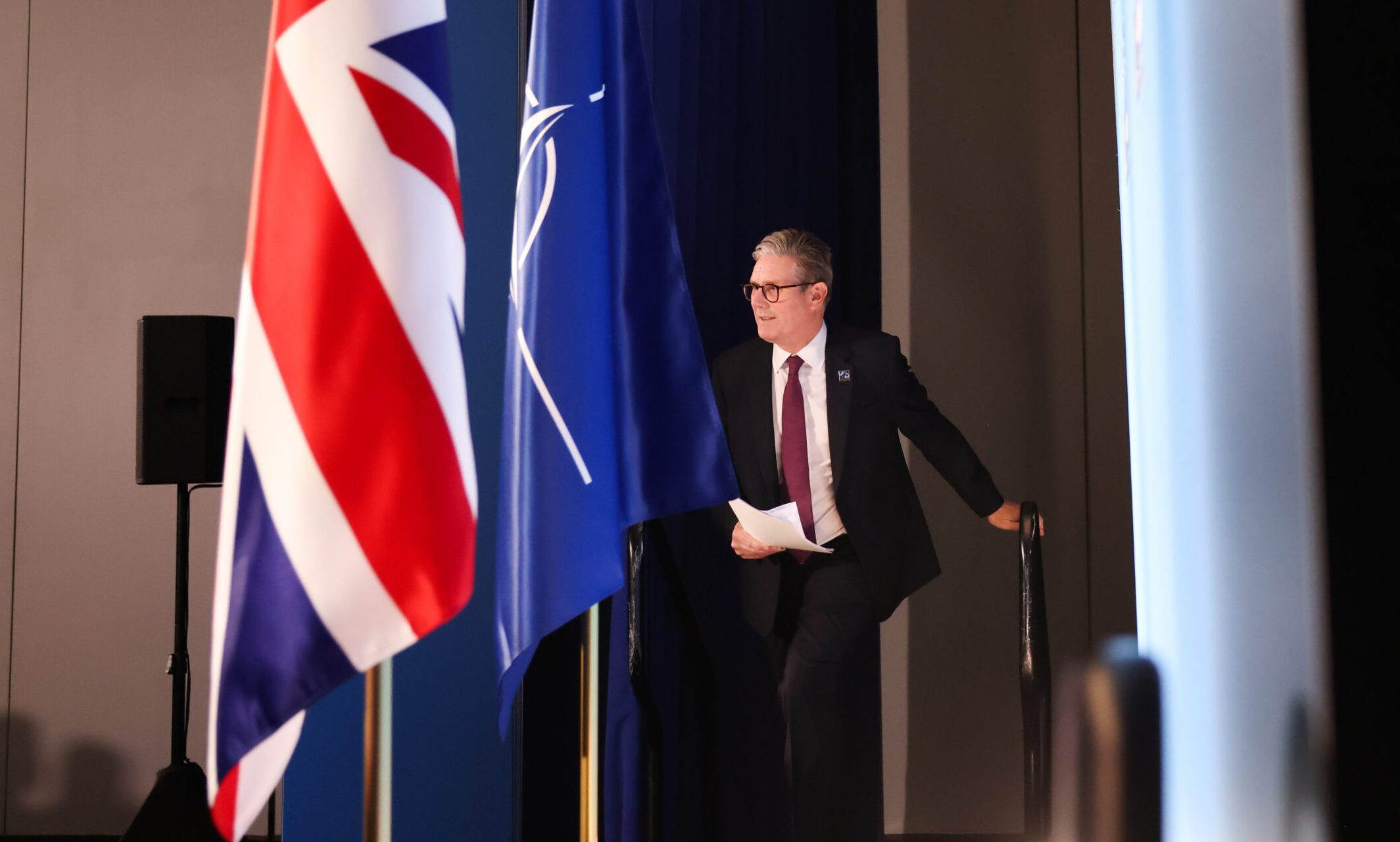Future Prospects: What Lies Ahead for China-UK Relations?

The UK July election, the first general election victory for the Labour Party since 2005, presents an occasion for reflection on the next course in relations between the United Kingdom and China.
This article is part of a series from CHOICE focusing on the impact of elections on countries’ China policy.
For the previous UK’s Conservative government, ambivalence has characterized its approach to managing relations with Beijing. In seeking to balance concerns about security, a desire to align with the US, while continuing to engage economically with China, the UK government ended up with a muddled approach.
From ‘Golden Era’ to Deteriorating Relations
Over the past two decades, despite the varying political compositions of successive UK governments, the trend has been mostly towards engagement and cooperation with China. Much like in the rest of Europe, a pinnacle of UK-China relations occurred during the 2015-2017, referred to by the conservative government as a ‘Golden era’.
However, in recent years, the relations between the UK and China has deteriorated sharply based on the UK’s concerns over the China’s human rights clampdown against Uyghurs in Xinjiang, as well as cases of espionage and influence operations by China.
The last British Governor of Hong Kong, Chris Patten, called Cameron’s ‘Golden Age’ proclamation absolutely pathetic. Conservative Prime Minister Rishi Sunak criticized China fiercely during the years of his governance, while also claiming that the role of China in the geopolitical order was an epoch-defining challenge to Britain, reflecting the UK government’s desire to balance its economic ties with Beijing with pressing security concerns.
Money, Technology, and Electric Vehicles
Like many other European countries, the UK imports from China and struggles to derisk from it. In 2023, China was the UK’s fourth-largest trading partner, though the UK ran a £27.3 billion deficit in total trade. Biggest Chinese-owned companies employed over 59,000 people in the UK and contributed total revenues of £116.4 billion to the country’s economy.
Moreover, the UK has been a convenient destination for funds that wealthy Chinese individuals have managed to transfer out of the country. This has historically led to the abundance of Chinese companies operating in the UK. China owns or invests in several quintessentially British landmarks, such as the Greene King, Three UK, Heathrow Airport, and the Walkie Talkie building.
Technology is also a critical issue in bilateral relations. The UK has repeatedly expressed concerns about cybersecurity risks posed by Chinese companies, including the role of Huawei in the development of 5G infrastructure in the UK. The previous UK government passed the National Security Law, the legislation attempting to reduce foreign interference notably from China by introducing harsher offenses on espionage, sabotage, working for foreign powers, and terrorism.
Yet, it is questionable whether the law would hinder the penetration of Chinese technology and surveillance technology in the country because the infrastructural dependence is already structural. Despite the fact that the UK will be phasing out all Huawei equipment from its 5G network by the end of 2027, it will allow local authorities to keep using surveillance cameras made by Chinese state-owned companies, such as Hikvision and Dahua, both linked to the suppression of Uyghurs in Xinjiang.
While the EU announced a protective tariff against Chinese electric cars, the UK has not followed suit. Some have even called to embrace ‘post-Brexit freedoms’ and pursue UK’s independent interests to allow Chinese cheaper cars into the country to counterbalance the oft-lamented decline of the local automotive manufacturing industry and deficit in motor vehicle trade with the EU, as well as to avoid potential retaliation from China on British products.
Interference by China
There have been numerous cases of China’s interference in the UK disclosed by the media. In April 2024, two men, including a former researcher in parliament closely involved with the China Research Group, were charged with spying for China under the rarely used Official Secrets Act. The year before, the Chinese hacking group APT 31 was accused by the UK and US of targeting members of parliament critical of China’s policies. In 2021, APT 31 was linked to a cyberattack on the UK’s Electoral Commission, which targeted databases containing names and addresses, as well as sensitive emails from its control systems and between election officials over six by-elections. Following this incident and other cybersecurity concerns, Conservative Prime Minister Rishi Sunak characterized China as the “greatest threat” to the UK’s security, surpassing even Russia.
China’s influence attempts have also been reported within the UK academia. Formerly, Chinese students flocked to the UK as a leading destination to study abroad and also because it could lead to resettlement and eventual citizenship in Europe. Between 2021 and 2022, there were 151,690 students from China in the UK, making them the largest cohort of international students in the country. However, since the relationship between China and the UK has deteriorated, so have the numbers of Chinese students enrolled in UK universities.
China has attempted to stifle academic debates in acts of transnational repression, which correspond with National Security Law. UK universities have also become more concerned with potential spying and infringement of intellectual property rights in the technology sector.
The atmosphere has led to decline in interest in enrolling in Sinology and China Studies programs in the UK. The number of students in these programs dropped by 31% between 2012 and 2021. This trend, however, has been observed in other European countries, too.
Hong Kong as the Pivotal Issue
Hong Kong, a British colony from 1841 until its handover to People’s Republic of China’s rule in 1997 under the ‘one country, two systems’ policy, serves as a pivot between China and the UK. Historically, it used to be a ‘haven for China watchers’ from the West, as well as activists publicizing misconduct of the Chinese Communist Party. Alarmingly, the passage of the National Security Law (NSL, 2020) following the crackdown of the 2019 protests, the largest series of demonstrations in the history of Hong Kong, have significantly suppressed free speech and created repressive conditions in Hong Kong for locals, activists, professionals, journalists, and academics alike.
The NSL criminalizes any act considered as secession, such as subversion, undermining the power or authority of the central government, terrorism (understood as using violence or intimidation against people), and collusion with foreign or external forces. According to Steve Tsang, China expert at the School of Oriental and African Studies (SOAS) and author of The Political Thought of Xi Jinping with Olivia Cheung, the NSL destroyed the rule of law in Hong Kong, as a parallel legal and judicial system was put in place under it. Concretely, it punishes five new categories of crime with sentences of up to life imprisonment: treason, insurrection, sabotage endangering national security, theft of state secrets and espionage, as well as external interference. It allows for up to 16 days of police custody without charge or recourse to a lawyer.
The extraterritorial application of the law implies it is intended to be enforceable abroad as well, which is unacceptable to the UK. The latter is what poses a challenge to academic independence in UK higher education institutions. According to China’s interpretation, events or lectures at a UK university that explore the question of, for instance, whether Hong Kongers should determine the future of Hong Kong would have ‘breached’ the Chinese law.
In line with the Sino-British Joint Declaration, the UK offered Hong Kongers a British National Overseas (BNO) status. The status is intended for permanent residents of Hong Kong who were British Overseas Territories citizens. The government has also recently started to ease visa process making it easier for BNO holders and their spouses to resettle in the UK.
The adoption of the National Security Law has increased the outflow of Hong Kongers, encouraging increased migration to the UK and Europe. The change of the government in the UK will not affect the UK’s commitments to immigrants from Hong Kong via the BNO scheme.
What Is Next for the Bilateral Relations
In comparison to France, whose President Emmanuel Macron recently welcomed Xi Jinping in a diplomatic visit, or in Germany, where Chancellor Olaf Scholz has engaged with China, the UK government seems tougher in rhetoric. The UK prime minister has not visited Beijing for almost 6 years. Moreover, the government has condemned China’s alliance with Russia and its behavior in the South China Sea and opposed China’s strategies targeting the Global South.
Nonetheless, the new election may have brought to power politicians with different agenda on China. Indeed, the new Labour government is set to conduct a party audit of UK-China relations. The Labour party has called for a more consistent approach in dealing with China and promotes a kind of pragmatism, similar to the EU trifecta. In the election manifesto the party pledged to “co-operate where we can, compete where we need to, and challenge where we must.” Should the election manifesto be taken as an indication of the course of the government on China, it would strive to improve the UK’s capability to understand and respond to the challenges and opportunities China presents, while continuing to defend the UK sovereignty and democratic values.
However, the significant challenges in UK-China relations over the past few years have stemmed from changes within China. These internal changes are unlikely to reverse, leading the UK to continue responding robustly to the increasingly authoritarian and repressive policies of Xi Jinping, which fundamentally contradict British values.
Written by
Melanie Shi
Melanie Shi is a postgraduate student at the EHESS (School of Advanced Study) in Paris, France, where she is working on a historical project about the afterlife of Maoism in the 1960s and is interested in China’s relations with the global ex-socialist bloc.


